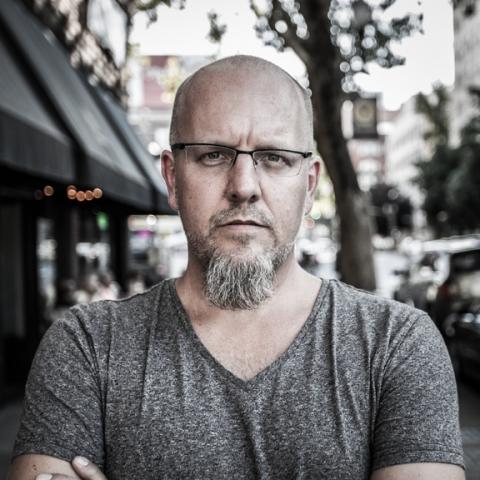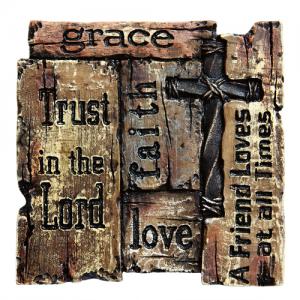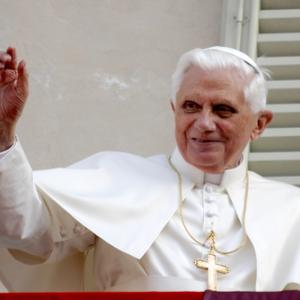
Christian Piatt is an author, blogger at Patheos and founder/cohost of the Homebrewed CultureCast podcast, where he focuses on the intersection of faith and popular culture. His latest book, “Leaving A-holiness Behind,” is available now, and his next book, “Surviving the Bible: A Devotional for the Church Year 2018,” will be available November 1, 2017.
Posts By This Author
Helping Churches Die Right
I was having lunch with another couple in ministry that shared a disturbing story with us. The problem isn’t so much in the uniqueness of the story they told, but rather in how incredibly common it is.
The couple had connections to a congregations several hours away that is located in the heart of a thriving urban center. The aging congregation was down to only 40 regular attendees and had released all of their paid staff, opting instead for volunteers to lead worship for them when they could secure them.
Meanwhile, they gathered in a building, valued at roughly $9 million, which they could not afford to maintain.
This church, like so many others, seeks answers to questions about how to survive in an increasingly secular, disparate, and religiously wary culture. Their hope, like plenty of other churches, is that something or someone will come along to save them, keep the institution going and propel them into the future for another century.
Oh, as long as they don’t have to change.
A Higgs Boson Walks Into a Church ...
Thanks to Steve Knight for alerting me to this joke, which has become one of my instant favorites. After all, it combines two things I dig: nerd humor and theology (also nerdy).
Yeah, yeah, you may be groaning, but you’re smiling while doing it. Admit it.
There’s plenty of chatter lately about the so-called “God Particle,” recently discovered , with some in the scientific field actually calling it the “goddamn particle,” because (at least as I understand it) the discovery opens up the possibility of something without detectable mass actually giving mass to other particles.
Kind of like: In the beginning there was nothing, and then…
Sound familiar?
Five ‘Christian Parenting’ Ideas To Let Go Of
There’s plenty of fodder for sub-par parenting in the Good Book if we want to find it. But based on the examples of Christian parenting I see in more contemporary culture, the things we’d be best to move beyond are a little subtler (sometimes anyway) than the examples above.
Consider James Dobson’s (former head of Focus on the Family) writing on raising children. He advocates corporal punishment, placing the male as the “head of the household,” and other advice that makes a guy like me cringe. And interestingly, a lot of the differences I have with traditional (some might say “evangelical”) Christian parenting parallel my differences in how to approach Christian community all together.
In that light, here are five habits, often attributed to “Christian parenting” values, that I’d just as soon replace with something new.
Why Am I a Christian?
Rather than mine being a theology of “Jesus died for your sin,” mine is one of “Thy Kingdom come.” That is archaic language, and I find that a little off-putting, yes, but given that it’s from the Lord’s Prayer, attributed to Jesus, I think it’s worth wrestling with. Basically, I share the interpretation of this line of the prayer with many seekers of social justice, like MLK, Walter Rauschenbusch and the like, who believe that the line, “Thy Kingdom come, Thy will be done, on earth as it is in heaven,” is an expression of longing, for God’s love to be fully realized, for our inequities and brokenness to be reconciled here on this earth, and not just some day after we die.
This is not likely something at which we will entirely arrive in this life, but it is something toward which we should re-orient ourselves daily, in order to seek it out, actively and vocally, in all we do. This, I believe, is Christ’s call to the world.
Ten Antidotes to Christian Cliches
This is the final in a four-part series on the overused (and often insensitively employed) phrases that plague the Christian lexicon. Though I felt like I was offering some insight into what to do instead of offering these cliches, some asked for more specificity or clarity. So in that spirit, I thought I’d offer a final list of things to do rather than pop off with these phrases that may mean little or nothing to the recipient, or worse, may cause unintended – but lasting – harm.
Read article one in the series here: Ten Cliches Christians Should Never Use
Read article two in the series here: Ten More Cliches Christians Should Avoid
Read article three in the series here: Nine (Final) Christian Cliches to Avoid
Now, Ten Antidotes to Christian Cliches.
Nine (Final) Christian Cliches to Avoid
 The response to this series of articles has been pretty overwhelming, and generally, very positive. For the handful of folks who label me an apostate, atheist, anti-Christian or what have you for stepping on some rhetorical toes, it’s fine if you feel the need to cast stones. But do bear in mind that, when you do, you are living into a stereotype of Christians as knee-jerk reactionary, judgmental people. Something to consider.
The response to this series of articles has been pretty overwhelming, and generally, very positive. For the handful of folks who label me an apostate, atheist, anti-Christian or what have you for stepping on some rhetorical toes, it’s fine if you feel the need to cast stones. But do bear in mind that, when you do, you are living into a stereotype of Christians as knee-jerk reactionary, judgmental people. Something to consider.
And for the hundreds who have written with thanks for helping them feel their pain, alienation, confusion or resistance is heard and understood, thank you.
In that spirit, I have compiled a third (and most likely, final) list of Cliches to avoid because, frankly, there were still so many worth noting that have yet to be addressed. Thanks to those who have submitted suggestions for additional lists. And because I’ve had some emails and comments asking for more clarity on what to do or say instead of leaning on these cliches, I’ll offer a closing piece for this series tomorrow about what I’d suggest Christians focus on instead of well-worn rhetorical scripts.
Enough prologue. Here are the final nine cliches to strike from the Christian lexicon if we’re interested in reaching people on a deeper, more personal level.
Ten More Cliches Christians Should Avoid
After writing up my first list of Ten Cliches Christians Should Never Use, some folks wrote me with other suggestions. After simmering on it for a while, I came up with a second list of ten to supplement the first.
And as there was some confusions from a handful of fellow Christians about the intent of the articles: these are not intended to tell you to believe or not believe a certain set of things. Christians have a Public Relations problem; that much is self-evident. So in as much as I can respond to that, I want to offer these as advice on how to change the way we approach people about our faith.
On to the next ten cliches for Christians to avoid …
Church Sign Epic Fails, Volume XXI
Ten Cliches Christians Should Never Use
We Christians have a remarkable talent for sticking our feet in our mouths. When searching the words most commonly associated with “Christian,” the list ain’t pretty. I think part of this can be attributed to a handful of phrases that, if stricken from our vocabulary, might make us a little more tolerable. Yes, these things may mean something to you, but trust me, non-Christians don’t share your love for these tried-and-true cliches.
So in no particular order, here are ten phrases Christians should lose with a quickness.
Christian Patriotism: Love for the 'Other'
Recently, someone asked me to respond (on video) to how I reconciled both love of God and love for country. I struggled with the question, mostly because of the typical baggage that comes along with Christian patriotism, much of which teeters on the verge of jingoism. So I didn’t respond at all.
I’m really sensitive to what I call “Christian exceptionalism.” There are those within Christianity that honestly believe America is God’s second Zion, the new Israel, and that we Americans are God’s new chosen people. This, in turn, helps justify everything from flags in worship spaces to the Ten Commandments in the public square, and even pre-emptive acts of aggression against perceived threats around the world.
Basically, when you hold yourself up as somehow favored in the eyes of God, it’s easy to hold those you deem as less favored to be somehow “less than,” and to dehumanize all who do not conform to your custom-built ideal of what it means to be “American.”
For me, though, such sentiments not only are un-American in the sense that they don’t ascribe to the “liberty and justice for all” ethos; it’s also patently un-Christian.
Church Sign Epic Fails: Volume XX
When All the Church Can Say Is 'I'm Sorry'
Two weeks after we arrived in Portland, Amy (my wife and new senior pastor at First Christian Church in downtown Portland) decided she needed to do something meaningful to express her voice as a person of faith in the community. There already were the folks handing out tracts down on the campus of Portland State University, which is definitely not us. There were plenty of community leaders to meet, hands to shake and even media outlets to connect with so we’d have a better handle on key circles of influence.
But none of what was really what we had in mind.
The annual Pride fest was taking place that weekend along the banks of the Willamette River, and we knew we should probably go. Folks in our new congregation are in various stages in their journey of discerning where they are with regard to sexual orientation, but overall, it’s an incredibly open and loving place for all people. There are gay singles and couples who attend regularly, and who participate in leadership and other ministries like everyone else. But the fact of the matter is that most people outside the walls of the church don’t know that. And honestly, how will they ever know if we’re not willing to tell them?
Better yet, why not show them?
Wild Goose 2012: An Exercise in Mindfulness
How do you know when someone has a Prius?
Don’t worry; they’ll tell you.
We got a Prius about four years ago, and immediately we bought into the hype about milking every gallon of gas for another tenth of a mile. We read the hyper-miler blogs about how to employ the gas and brake pedals most efficiently. We competed against each other for the best MPG. It was nerdy but fun, and we felt like we were doing something at least a little bit socially redeeming.
I haven’t seen the research, but I’m convinced that a significant chunk of the Prius’ reputation as a gas miser stems from the way its users are trained to drive it.
Love Greater Than Our Differences: Christian Piatt's Interview on ChurchNext
I spoke with Chris Yaw recently, host of an online program called ChurchNext. On it, he has dialogues with a number of church leaders about the current state of organized religion, the changing face of Christianity and what our churches may do to remain (or become) relevant, vital ministries in the world.
Here’s a video of our chat. You can also download the whole episode from his website, or catch it as an audio-only MP3.
What Would Jesus Brew? Tapping Our Franciscan Roots
Benjamin Franklin, pointing to the story of Jesus turning water into wine, acknowledges the miracle of the processes of nature itself, taking natural sugars and recombining them into an (ahem) intoxicating elixir that has been a staple of global culture for millennia.
And then the religious folks came along and tried to ruin the fun for everyone. Having grown up Baptist, I heard some of my fellow faithful proclaim the evils of demon alcohol, though their warnings seemed to do little to stem folks’ drinking, aside from pushing them to do it more privately. Then I met some Anglican and Jewish friends who appreciated the fruit of the vine around the dinner table. I was shocked – and more than a little intrigued – when I saw kids under the age of 21 taking part in the ritual wine drinking as part of a Jewish Seder meal, and I was in awe when I realized some churches used real wine in their worship services.
So which is it? Is alcohol the lynchpin of the decline of civilization, or is it a sacrament, not only to be enjoyed, but to be held up as a gift from the Almighty?
The Fallacy of Statements of Faith
I have a confession to make.
A while back, I was applying for an editing job with a fairly prominent Christian media company, and in the application process, I was asked to sign a statement of faith. For those unfamiliar, this is a list of things that the organization in question claims to believe, and they ask all who are interested in being a part of it to sign their name, claiming their personal agreement with and belief in the exact same things.
Truth be told, I needed the job. So even though I didn’t actually agree with several points in the statement of faith, I signed it. Turns out I didn’t get the job anyway, so I compromised myself for pretty much nothing.
I had another organization approach me recently about publishing some of my work. They’ve followed my writing for some time and thought that my content would add something valuable to their community. In most cases, when I give permission to folks to “repost” my stuff, it involves little more than a verbal agreement about what they plan to do with my articles. But this one came with two separate agreements I was asked to sign before moving forward.
There, in the middle of both agreements, were the same statements of faith, nearly mirroring word-for-word the one I had disingenuously signed the first time when the job was at stake. But this time, I thought twice about it. I wrote them and explained that, although I’d be happy to work with them, I couldn’t sign their faith doctrine agreement in good conscience.
Mad Men, Catholics and a 'Moral Revolution'
Amy and I have been working (translated: watching lazily) our way through the first several seasons of Mad Men. The writing is remarkably subtle, and I was particularly struck by the fact that such a long-standing show could effectively have little or no plot focusing instead on rich character development.
For a writer, this is like enjoying a gourmet meal every night.
But the cherry on top for me is the sprinkling of anachronisms that apparently made plenty of sense at the time, but which are shockingly out of place now. There was a scene of the main family in the park, and when they’re done, the mother gives the blanket a good flick and leaves all of their trash wherever it falls. There’s also the constant smoking, even around kids and by pregnant wives (the perfect antidote for nausea, apparently), drinking at work and brazenly racist comments as the cultural norm.
Hard to believe sometimes that this took place so recently that my parents were teenagers when it took place.
'Study Drugs' Point to Greater Social Failure
Are we subjecting our children to a perpetually overstimulating environment? Quite possibly. Are we expecting superhuman results from them at critical points in their development when they may lack the critical judgment skills to resist such monumental pressure? Based on the epidemic now rampant in our high schools and colleges, I’d say yes.
I wrote recently about the moral questionability of the student loan system, and further, the culture of pressuring kids into college straight from high school as a necessary rite of passage, regardless of capacity to pay for it or understanding of what they need from it. But beyond urging them to mortgage a large chunk of their futures away, it seems we’re compromising their health and perhaps mental well-being for the sake of some horse race that may or may not actually be real or necessary.
What’s worse, it seems we’re harvesting a generation of addicts, placing results ahead of happiness, and certainly ahead of service, community or God.
Activism, Slacktivism or Distractivism?
I struggle to know how much is enough. I hear about Joseph Kony and the many children he’s exploited as child soldiers. I get angry, discouraged. I write about it, talk to friends about it.
And then my life keeps moving and I don’t think about it again for days or weeks.
Trayvon Martin, an unarmed teenager, is gunned down on the street. The nation is divided, both outraged about the killing and fearful of the threat to gun rights and laws of self-defense.
And then we talk about something else.
Today’s issues include the nuns going head-to-head with the Vatican, as well as stories about still more preachers being busted for spousal abuse, or expelled from their jobs because of their sexual orientation.
Tomorrow it will be something else.
David Barton: You’re Poor Because You Don’t Read the Bible
Those who wish the see the wall of separation between church and state burned down have a rather colorful – if not exactly truthful – spokesperson on their side these days. Evangelical preacher, founder of “WallBuilders Live” and perennial headline grabber David Barton is known for his “out there” claims, but his most recent is a keeper.
Barton is fairly well known for his argument that the notion of separation of church and state is a myth. He, like many fellow conservative Christians, believe that the United States was founded as a Christian nation, and that our founding father intended for this to be a country governed by Christian values, if not specifically Christian leaders.
This, by itself, is not particularly outrageous, at least in the sense that his views are not unique to him. But one of the foundational claims he makes to support his advocacy for Christian nation status is his claim that the Constitution of the United States quotes directly from the Bible.
Come again?


















